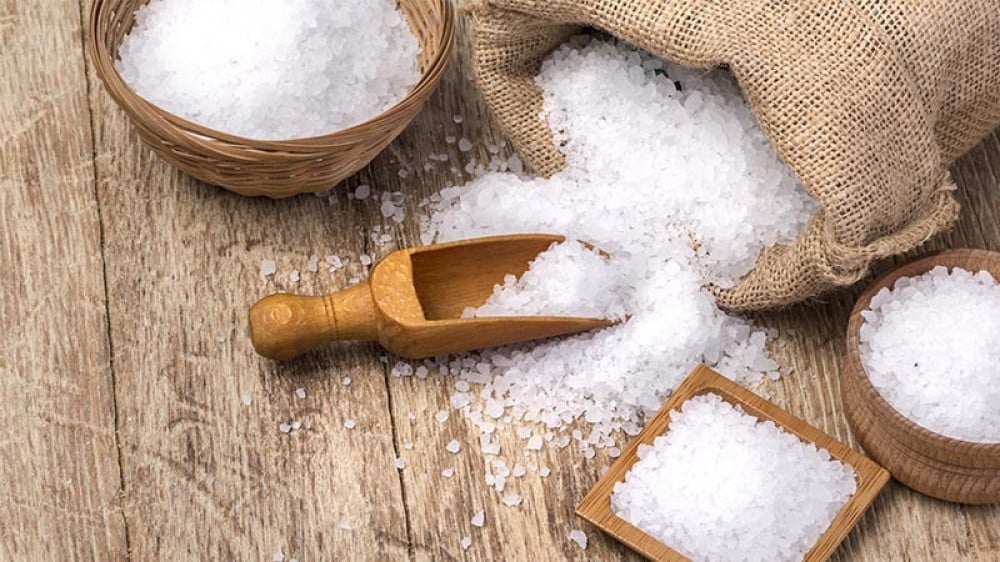
Salt is an essential element in human life. It is used to improve the flavor and preparation of food, and it also plays an important role in body functions. However, consuming salt in excess can lead to health problems. In this article, we will shed light on the benefits and harms of salt, and talk about the most important information that people should know about this important element.
Salt is a chemical compound consisting of sodium and sodium chloride (NaCl). Salt is one of the essential ingredients to improve our food, as it is used to prepare food, rid it of unpleasant odors, and enhance its flavor. Salt is also considered an important element for maintaining electrical balance in the body and cell functions. You will learn about the most important benefits and harms of salt from the Atara website in Saudi Arabia.
Benefits of salt
Although consuming salt in excessive quantities can be harmful to health, there are some health benefits of salt when consumed in moderate amounts:
- Maintaining the body’s electrical balance: Fine salt works to maintain the balance of sodium and potassium in the body, which are important minerals for the functions of cells, muscles, and nerves.
- Improving digestive system functions: It is believed that salt, such as Epsom salt , contributes to improving the digestive process by stimulating the digestive glands to produce digestive acids.
- Preventing anemia: Salt contains a small amount of iron, which contributes to the prevention of anemia.
- Preserving foodstuffs: Salt is used in drying and salting foods as a way to preserve them for a long time, such as salting cucumbers or green olives .
Salt damage
- High blood pressure: Salt contains sodium, which can lead to high blood pressure when consumed in excess, which is a risk factor for heart disease and stroke.
- Increased likelihood of kidney stones: Eating excessive amounts of salt can increase the likelihood of kidney stones forming, since it increases the concentration of calcium in the urine.
- Heart enlargement: Excess salt consumption can lead to heart enlargement and negatively affect its functions.
Optimum salt consumption
It is preferable that the daily salt consumption for adults does not exceed 2,300 mg (about a teaspoon), while the daily amount for children should not exceed 500 to 1,500 mg, depending on age.
How to reduce salt consumption
To maintain a healthy body and avoid the potential harm of eating salt in excessive quantities, some tips can be followed:
- Avoid salty foods: Avoid eating high-salt or canned foods and ready-to-eat foods that contain large amounts of salt.
- Replace salt with herbs and spices: Use fresh herbs and spices to improve the flavor of food instead of relying on salt.
- Read the nutritional label: Check the amount of sodium in products and foods by reading the nutritional label.
Despite the importance of salt in improving the flavor of food and enhancing body functions, it must be consumed with caution and in moderate quantities to avoid health damage. Using herbs and spices to enhance the flavor of food and reading the nutritional label to see how much sodium is in products are good ways to limit excessive salt consumption. Individuals should be aware of the benefits and harms of salt and follow a healthy and balanced lifestyle to maintain good health and prevent potential health problems.

